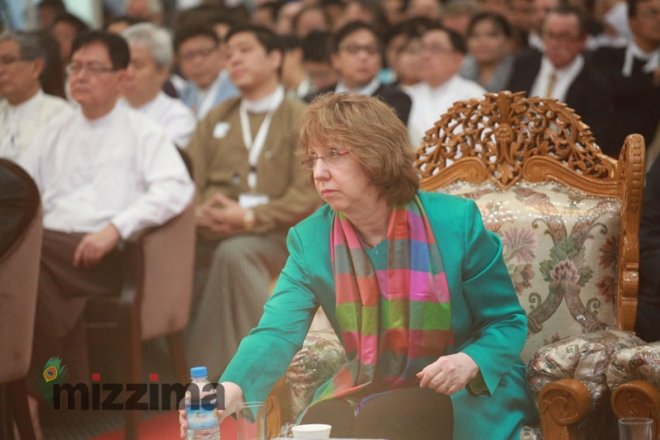The European Union has unveiled plans to focus on rural development, education, governance and support for peace building in its multi-million euros aid cooperation program with Myanmar in the coming years.

The proposed main sectors for development cooperation for 2014 to 2020 were announced by the EU Commissioner for Development, Andris Piebalgs,said an EU press release issued in Brussels on November 14.
The announcement came during a November 13-15 visit to Myanmar by Mr Piebalgs to participate in the first EU-Myanmar Task Force, the release said.
“Although the bilateral assistance budget hasn’t been formally approved by the European Parliament and the European Council, EU support could increase up to 90 million euros (about K120 billion, US$120 million) per year,” it said.
“The development taking place in Myanmar is unprecedented and needs to be acknowledged,” Mr Piebalgs was quoted as saying.
“We must not forget about the challenges ahead, for which the EU, as one of the main donors, will stand by with further support to continue the necessary reforms in the country,” he said.
“This will be done in coordination with EU member states and other donors and in harmony with the government’s own plans.”
As well as attending the task force meeting, Mr Piebalgs will also chair a development forum with the Minister of Planning, U Kan Zaw. The forum will be attended by the leader of the National League for Democracy, Daw Aung San Suu Kyi, and representatives of civil society groups and the private sector.
The forum will provide an opportunity to discuss a coordinated response from the EU and its member states and to support the government’s development plans during the next few years, the release said. It will also review and debate the key development challenges facing Myanmar.
The commissioner’s itinerary also includes attending the launch of a program aimed at benefitting small and medium enterprises in the garment sector.
The SWITCH-SMART (SMEs for Environmental, Accountability, Responsibility and Transparency) program“promotes and supports sustainable production of garments ‘made in Myanmar’ striving to
increase the international competitiveness of small and medium enterprises in this sector,” the release said.
The three-year project has been funded with an EU grant of about two million euros (K2.7 billion, $2.7 million) and aims to reduce poverty through trade and private sector development in Myanmar.
The EU has provided development aid to Myanmar since 1996, with more than 300 million euros (K400 billion, $400 million) committed so far, said the release.
“Following the political opening of the country Commissioner Piebalgs announced a package of support of 150 million euros (about K200 billion, $200 million) early last year for 2012 and 2013, all of which has already been committed,” it said.
The funds have gone to such sectors as health, education livelihoods, aid to uprooted people and civil society.
The release said support to civil society will go towards monitoring reform and the transition process, “addressing discrimination (ethnic tensions) and domestic observation of the electorial cycle.”
Funds were also committed this year to supporting peace building and projects involving climate change, trade and the private sector.



